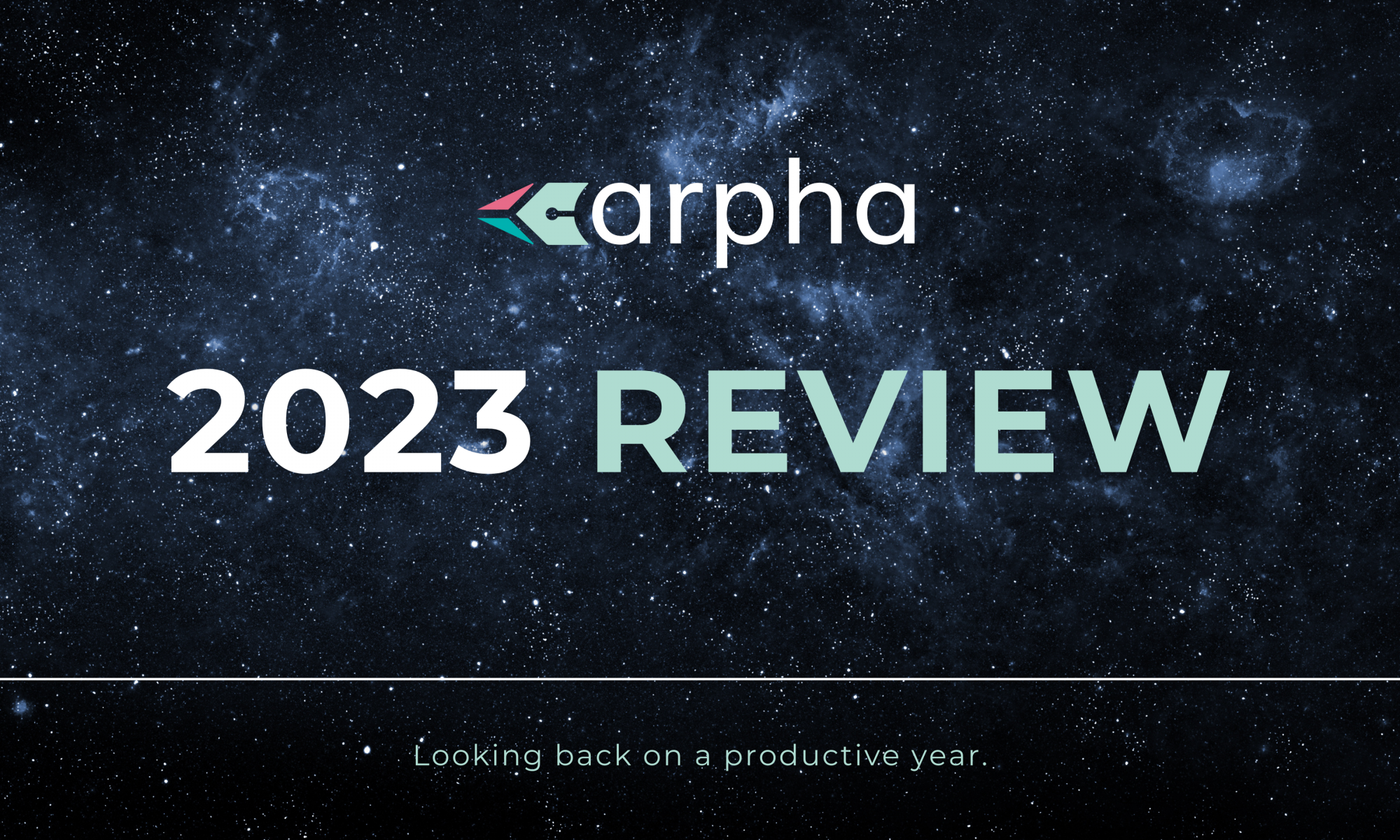2023 was a fantastic year for ARPHA, marked by a series of significant milestones and innovations in our scholarly publishing mission. As we reflect on the past year, we are excited to share the major strides taken by our dedicated in-house team to provide the best customised, end-to-end services for our clients.
Expansion of the ARPHA journal family
ARPHA welcomed new and diverse titles into its fold, demonstrating a commitment to promoting open-access research across many disciplines.
The Aquatic Invasions journal
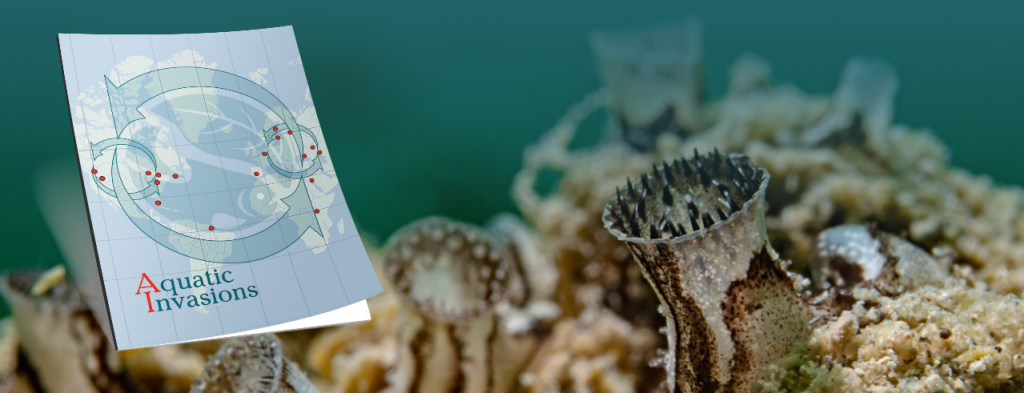
This journal found a new home on ARPHA, enhancing its visibility and impact in the scientific community. Focused on biological invasions in both inland and coastal water ecosystems from around the world, Aquatic Invasions is an official journal of the International Association for Open Knowledge on Invasive Alien Species.
Atomic Layer Deposition
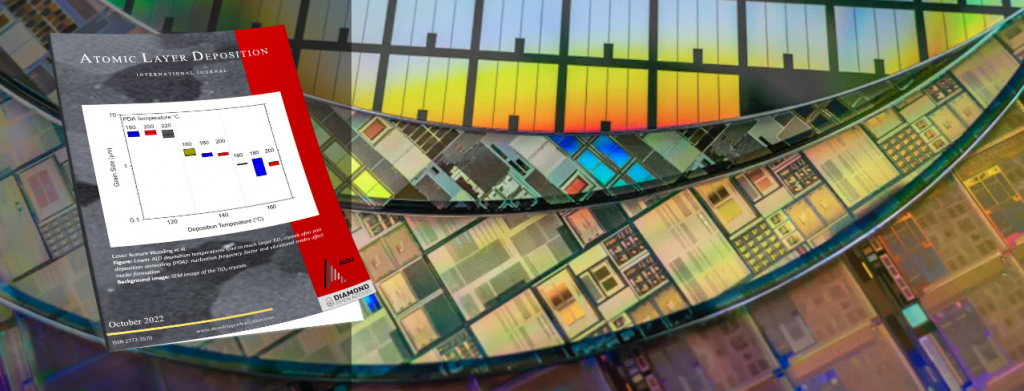
Catering to cutting-edge research in the field of material sciences, this journal launched on ARPHA in March. Atomic Layer Deposition targets scientists specialising in all aspects of Atomic Layer Deposition and related alternating vapour phase technologies.
Estuarine Management and Technologies
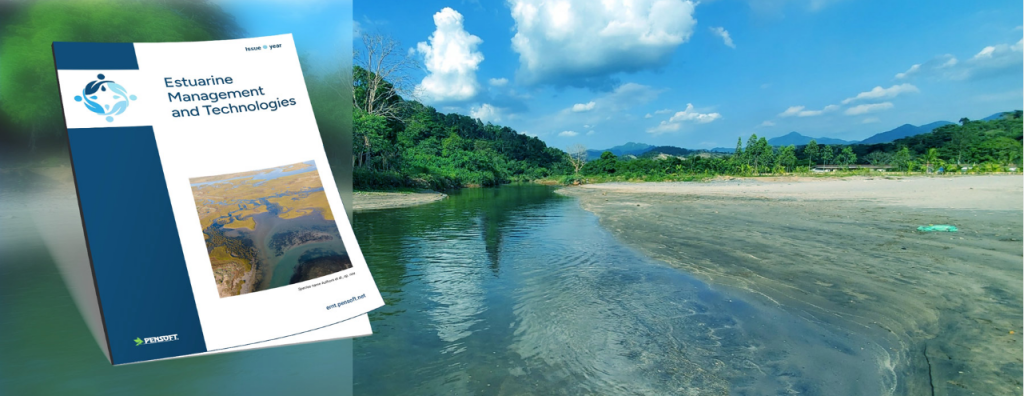
Another significant addition to our platform, this journal focuses on the technological facets of researching, managing, and preserving estuarine environments.
The addition of these titles is indicative of things to come, with more exciting entries expected to join ARPHA in 2024.
ARPHA’s strategic partnerships and integrations
ARPHA’s commitment to increasing the reach and impact of scientific research led to noteworthy collaborations in 2023.
ResearchGate integration
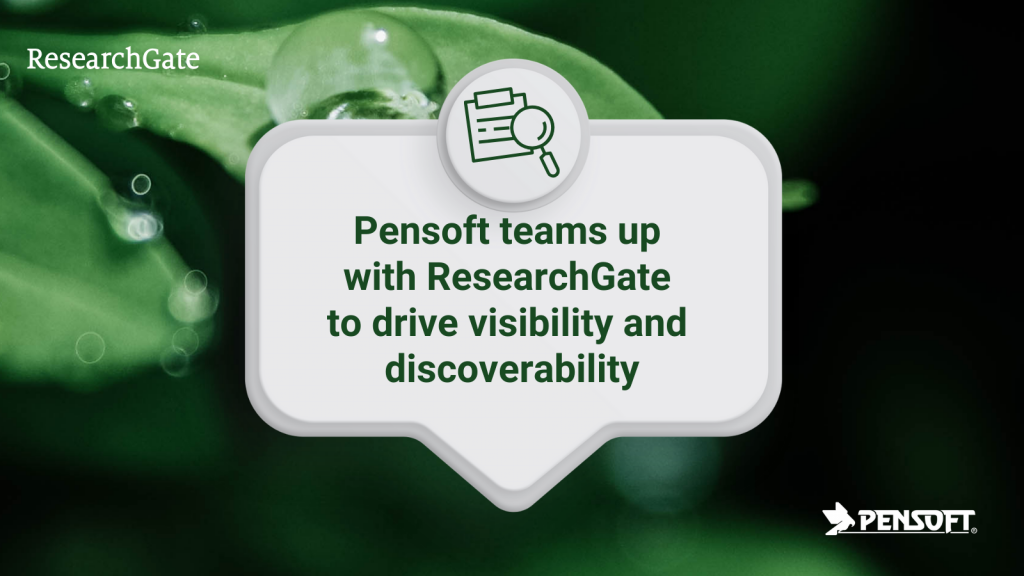
Our partnership with ResearchGate significantly boosted readership and visibility for our open-access publications; we saw a 2-5 times increase in article views for journals that opted in to have their context indexed. 20 Pensoft journals were indexed, including the flagship titles ZooKeys, PhytoKeys, MycoKeys, Biodiversity Data Journal and Research Ideas and Outcomes.
Scite.ai collaboration
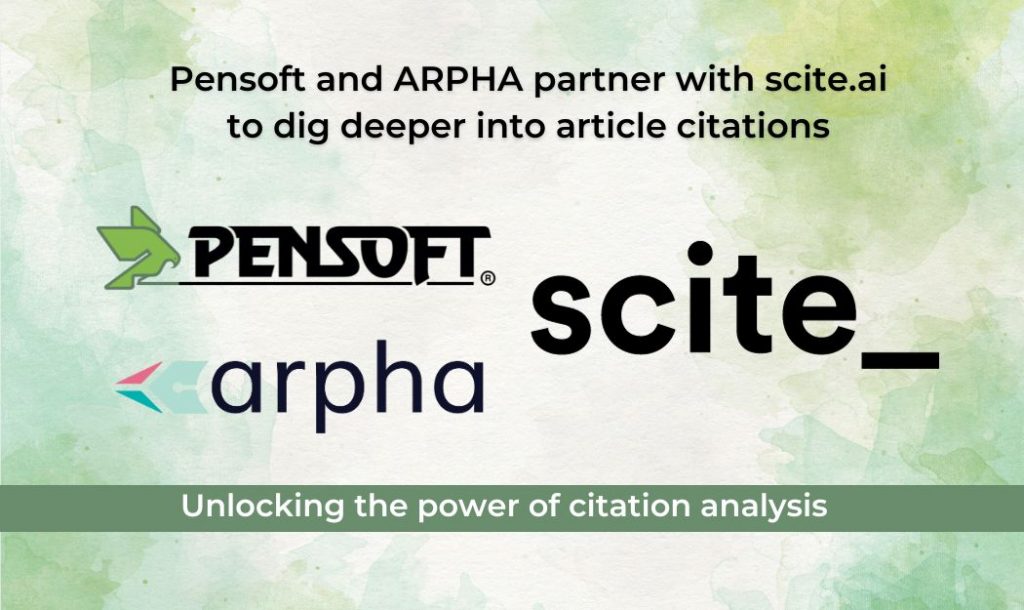
This integration enhances the understanding of articles’ scientific impact and reuse, offering valuable insights to both readers and authors. With scite.ai, every citation is categorised as Supporting, Contrasting, or Mentioning, based on the context of surrounding sentences within the citing publication.
Enhancements and accolades
Our continuous efforts in tech infrastructure and design services yielded notable achievements and recognitions.
ARPHA PDF layout revamp
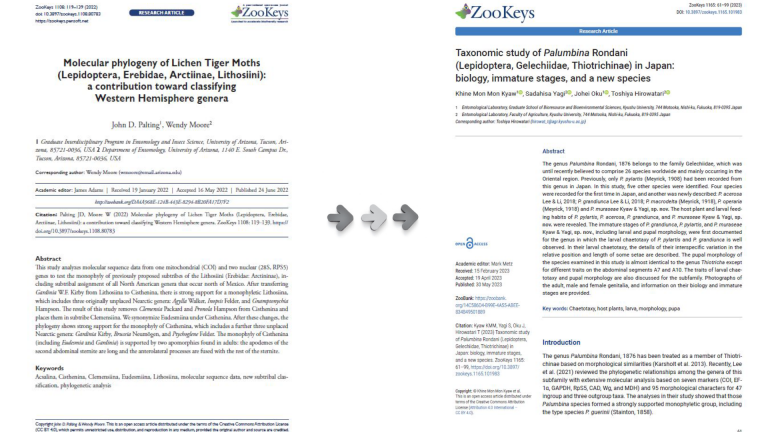
We introduced a modernised layout for the PDF format of articles, enriching the reading experience. The new format focuses on readability and accessibility, implementing many changes requested by the scientific community.
ARPHA Writing Tool and nanopublications
Our innovative XML-based authoring tool now supports a novel workflow for nanopublications in biodiversity research, piloted at the Biodiversity Data Journal.
European Reference Index for the Humanities and Social Sciences (ERIH PLUS)
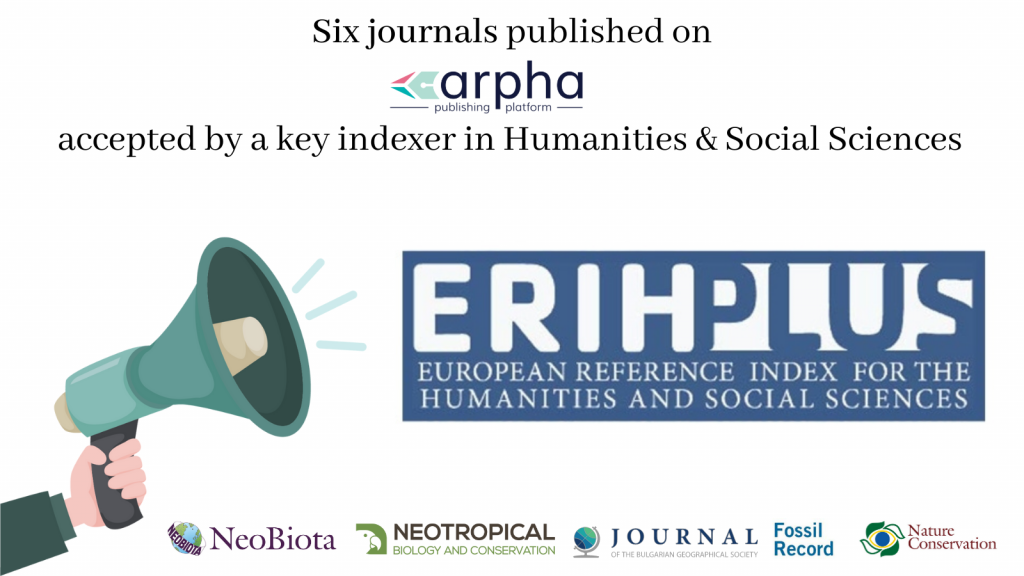
Six of our journals proudly joined this index, including four Pensoft journals: Nature Conservation; NeoBiota; Neotropical Biology and Conservation; and Fossil Record. The Journal of the Bulgarian Geographical Society and the Amsterdam University Press’ Heritage, Memory and Conflict (HMC), which use ARPHA’s white-label publishing solution, were also accepted.
New on Scopus

The Bulgarian Society of Cardiology’s journal’s inclusion in Scopus marked a significant achievement. The journal met several criteria, including: immaculate peer review and editorial processes; a good and consistent yearly publication volume; high-quality and user-friendly website and infrastructure; well-pronounced internationality and inclusivity; and considerable readership and citation rates.
New on Web of Science
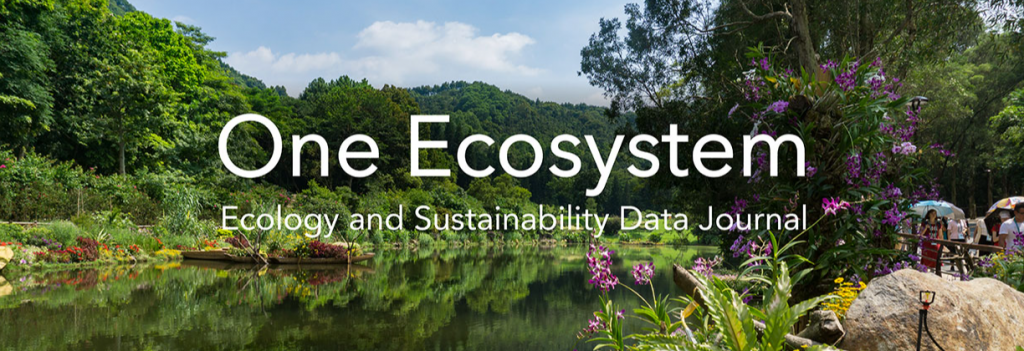
One Ecosystem‘s selection for inclusion in this index was a testament to its quality and integrity. The news means that One Ecosystem might see its very first Journal Impact Factor (JIF) as early as 2024, following the latest revision of the metric’s policies Clarivate announced last July. According to the update, all journals from the Web of Science Core Collection are now featured in the Journal Citation Reports, and thereby eligible for a JIF.
Keeping pace with scholarly publishing trends
Staying at the forefront of scholarly publishing, we continuously adapted to the latest best practices and addressed our clients’ needs.
ARPHA’s advisory role in journal comparison service
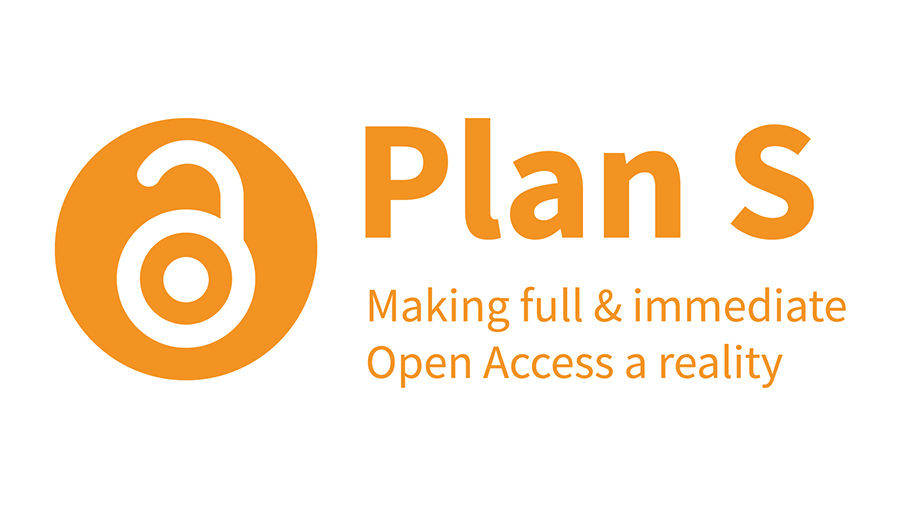
Pensoft’s involvement in developing the Journal Comparison Service by cOAlition S reflected our commitment to shaping the future of open-access publishing. The service freely and securely enables libraries, library consortia, and funders to understand if the fees they pay are commensurate with the publication services delivered.
EU’s conclusions on OA scholarly publishing
Our official statement aligned with the EU’s stance, emphasising our support for open-access initiatives. We highlighted the need to promptly address existing issues in the publishing system, so that healthy competition can thrive and contribute to a reality safe from monopolies and corporate capture.
Addressing ARPHA client needs
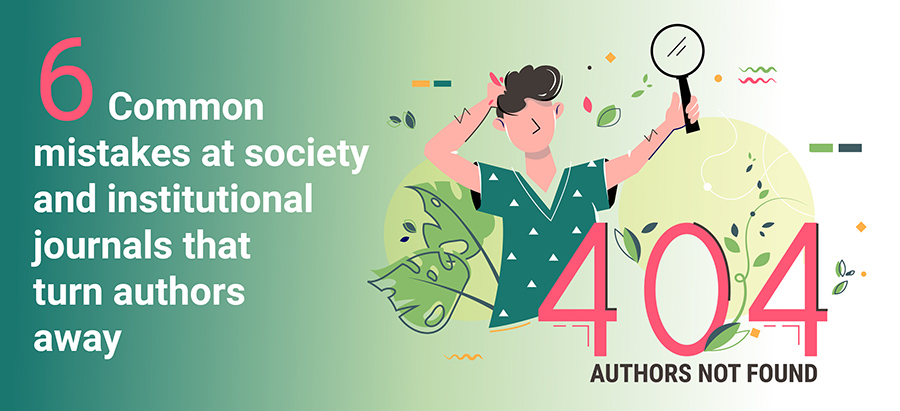
Our feature blog piece, “6 Common Mistakes at Society and Institutional Journals,” showcased our understanding and proactive approach to addressing the concerns of our clients.
—
As we progress into 2024, ARPHA remains dedicated to enhancing the scientific impact and visibility of our journals, leveraging technology and collaborations to serve the ever-evolving needs of the scholarly community. We thank our partners, clients, and contributors for being part of this exciting journey as we look forward to another successful year.
—
For news from & about ARPHA and the journals using the platform, you can follow us on Twitter and Linkedin.

